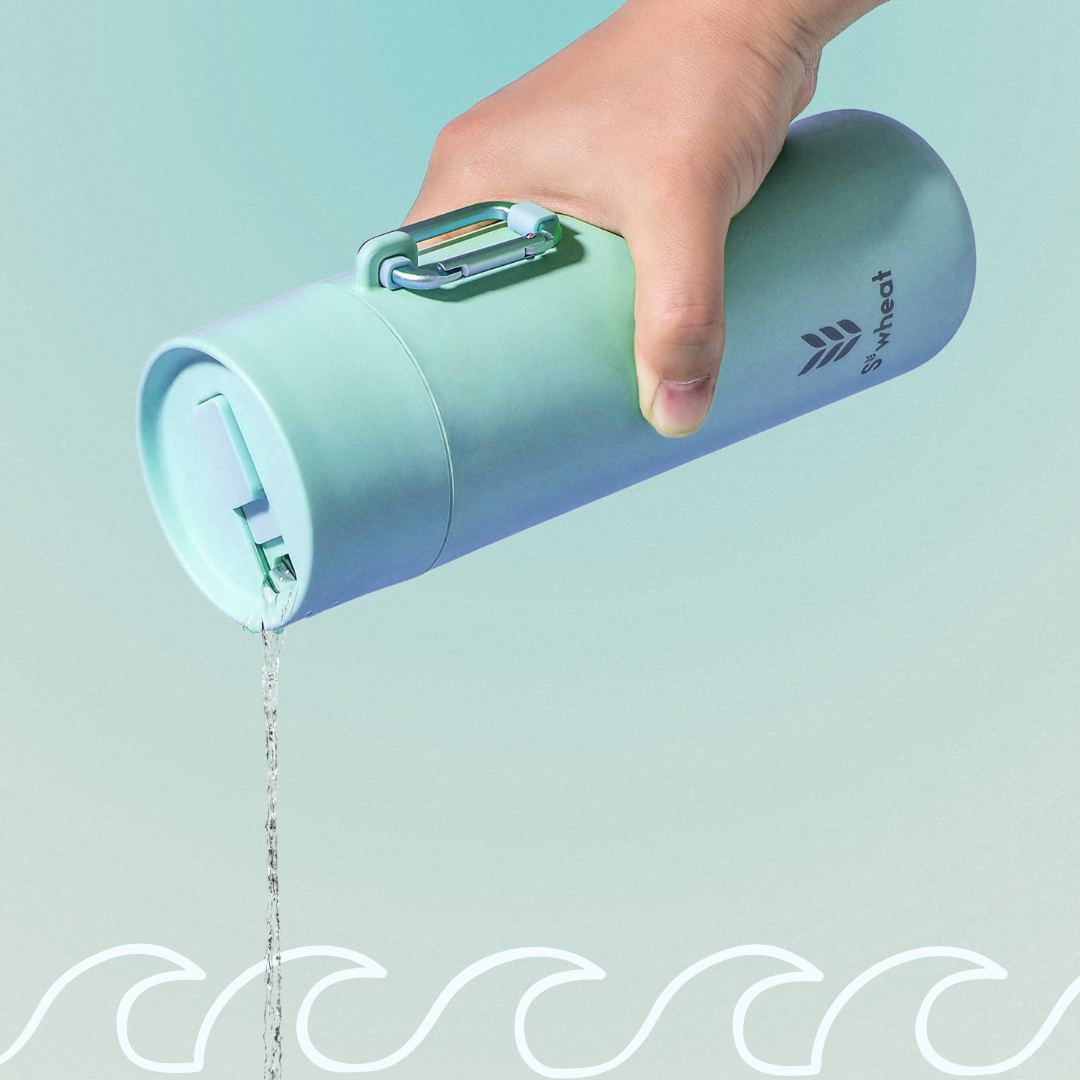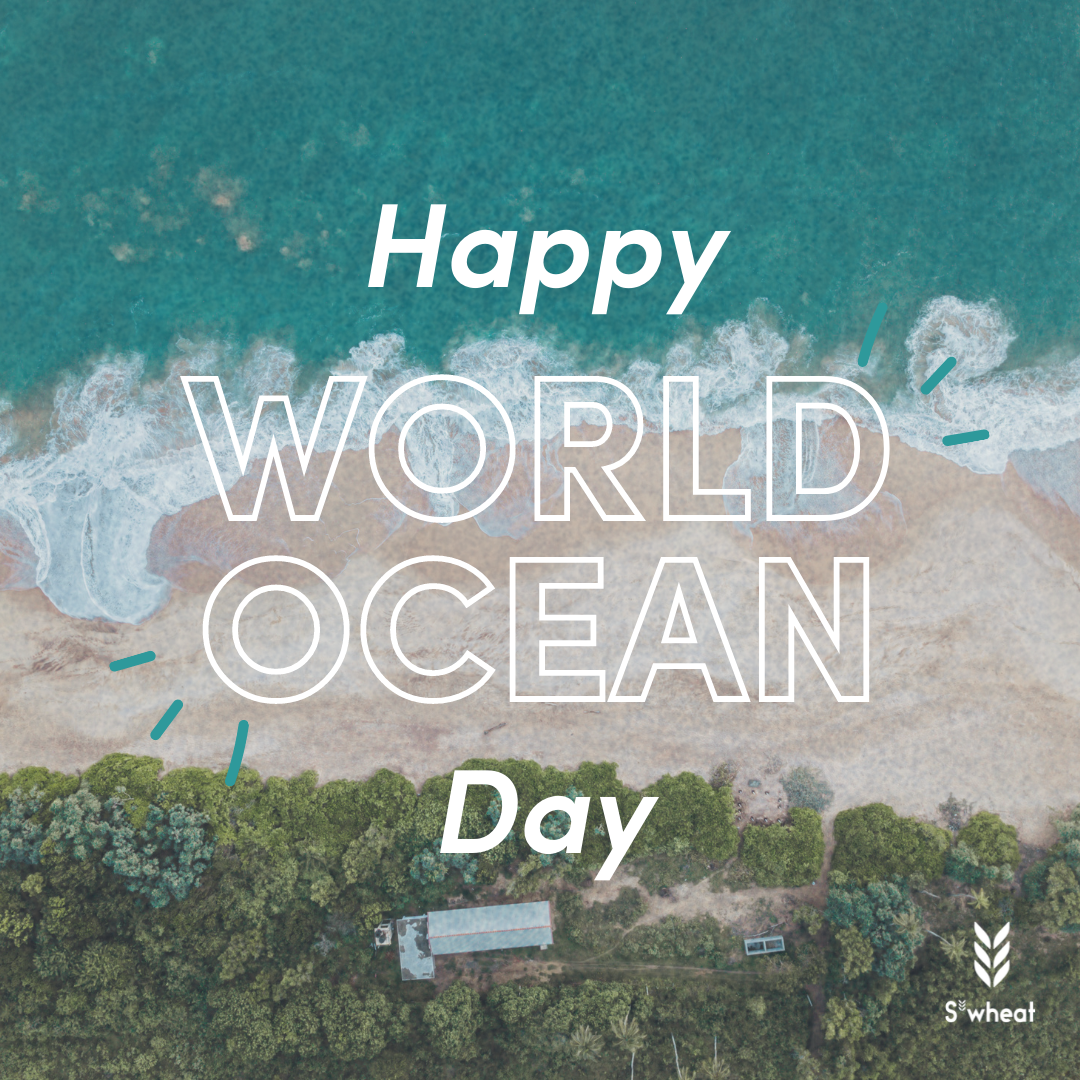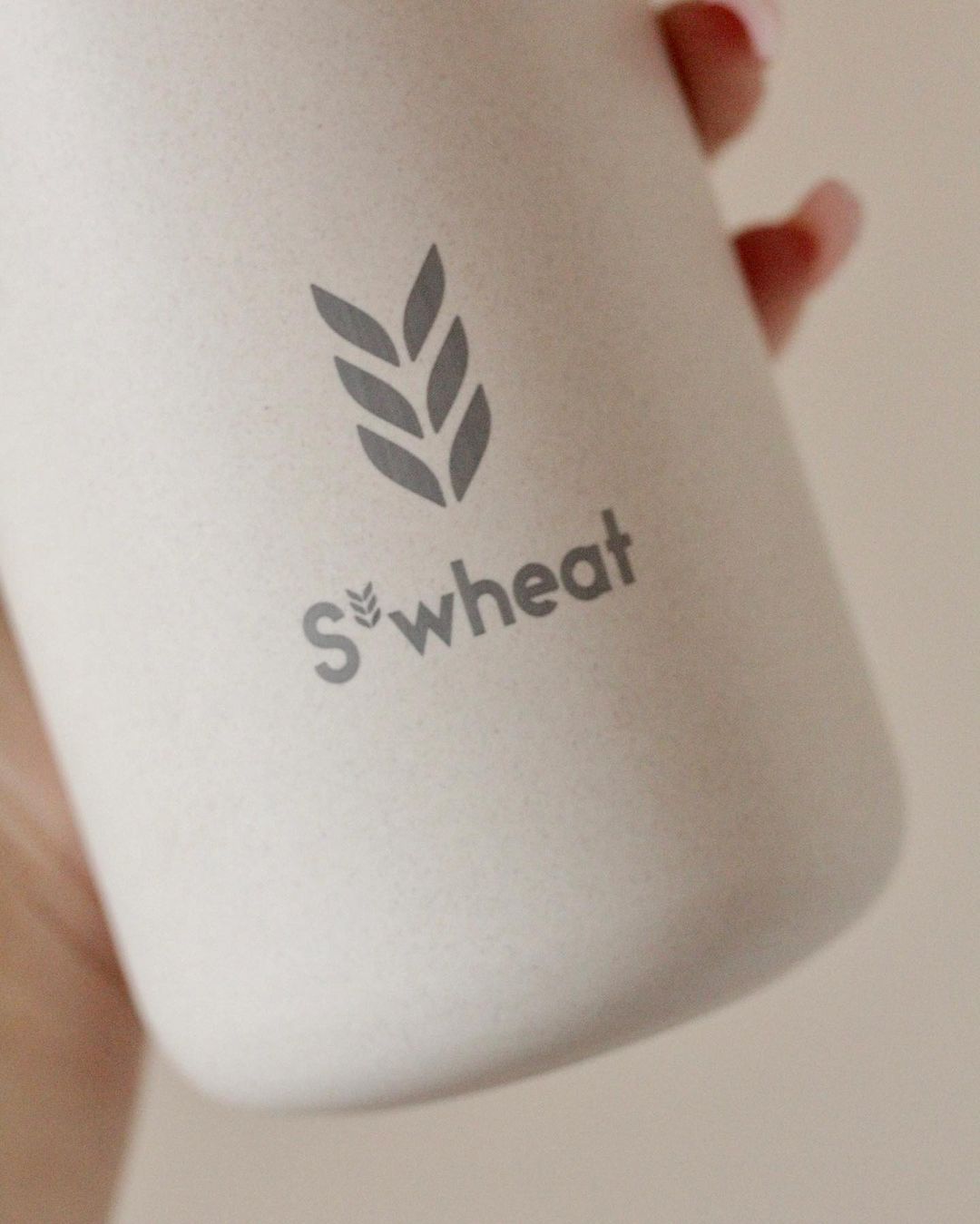Despite the climate emergency looming over us all, one of the deadliest threats to our environment, single-use plastic water bottles, are still in widespread use. As of 2021, 60 million plastic bottles were used daily around the world, which has resulted in around 8 million winding up in the ocean. This is predicted to outweigh the number of fish by the year 2050, which is one of the reasons it’s so important to properly recycle, however this can come with added health risks as recycled plastic bottles have been found to leak even more chemicals and microplastics into your drinks as they begin to degrade and weaken. World Refill Day 2022 falls on 16th June, and encourages the use of sustainable, reusable bottles and cups to prevent further damage from disposable drink vessels.
Although recycling is a fairly common practice these days, it’s thought that a maximum of just 9% of all plastic actually gets recycled, and estimated a measly 5% in the US. Even when plastic does get recycled, this can only be done two or three times before the plastic has degraded too much throughout the process to be reused again. A lot of so-called recyclable plastic items are misleading or quite vague in how they can be recycled. Plastic is labelled 1-7 in recyclability, with 7 being completely impossible to distinguish whether it is really able to be recycled. It all depends on whether it is a thermoset plastic or a thermoplastic: thermoset plastic contains polymers, which means it can’t be melted down and re-moulded into something new, whereas thermoplastics such as PLA or bioplastics can be.
5 ways to participate in World Refill Day
- The first and most obvious tip to show your support and take part in World Refill Day is to use a reusable water bottle or drinks flask. Choosing a lightweight bottle that holds plenty of liquid is the best way to ensure you never need to buy bottled water again. Many shops and cafes have decided to get behind the cause and offer to refill your bottle free of charge. This includes popular coffee and food shops such as Costa, Starbucks, and Greggs, and product stores and supermarkets including the Co-op, Morrison’s, and Lush. On the Refill app, with 274,688 refill stations globally and counting, you can easily find locations near you to refill your bottle with water. Some cafes and coffee shops even offer a discount if you bring your own reusable flask for your drink.
- Committing to keeping your plastic and water waste to a minimum is a great way to show support towards the cause. Being mindful of the products you’re buying, what the brand or companies ethics and sustainability policy is, and how they package their products can significantly reduce how much plastic you use, recyclable or not. Making sure to save water by turning taps off when they needn’t stay on and keeping showers short can save a lot of water over time, not to mention money.
- Making a change in your own life to reduce water and energy consumption or plastic waste can feel frustrating and futile at times, particularly if you are regularly consuming media about the state of our environment and the great contribution to pollution and greenhouse gas emissions that large corporations have on the earth. Although it’s still imperative to take responsibility for your own actions, spreading awareness and encouraging others to get behind the cause can help keep motivation high and make a much larger positive impact. Making others aware of this through word of mouth is helpful but can take some time, so utilising how easy it can be to reach a wider audience via social media is a smart idea as it can influence a far larger number of people at a much faster rate. Refill schemes are another route to community-based solutions and getting others involved.
- Approaching and getting in touch with local businesses and companies can really encourage them to step up their sustainability goals. Although smaller local businesses will likely be easier to reach and persuade to get involved, successfully reaching out to larger organisations would make the world of difference. The larger and more influential it is, the more people can be reached through them, and especially if the company is surrounding retail or energy, a huge reduction in waste and pollution could be made. Other powerful entities include those working in government/parliament, so contacting both your local representatives and more powerful members of parliament can get your cause directly to where real, lawful changes can be made.
- Although they may not be as common as they should be at this point in time, refill shops are a brilliant solution to our current waste issue. Many will sell unpackaged natural foods like fruit, vegetables, and other plant-based or organic products where you can bring your old jars, tubs and containers to fill with these, removing the need to use new plastic packaging each time. Refill shops that sell hygiene products or items such as laundry detergent allow you to purchase a bottle of product once and then return to fill it back up, instead of wasting plastic or other materials that likely won’t end up actually being recycled. Online stores that offer this service can be paid through a subscription where you receive regular refills and sometimes offer rewards for sending packaging back to be refilled or recycled. Such a convenient service also means you don’t have to worry about running out of things as they can be delivered straight to your door on a regular basis.
Even single-use coffee cups, which typically consist of a recyclable paper material, contain polypropylene in the lining, which is what keeps the drink hot and prevents it from seeping out. Although this can be recycled, it won’t be if it is just tossed into a mixed recycling bin - it needs to be separated with a machine, and not all recycling services offer this. Due to the difficulty in recycling these, an estimated 40,000 coffee cups are littered in Scotland alone each year. Fortunately, a plan has been devised to charge 20-30p extra for disposable coffee cups in Scotland, which should help to discourage their use.
Common solutions to the issues with plastic bottles and single-use coffee cups are glass and steel alternatives, as unlike plastic, these can be infinitely recycled and are usually rather effective at retaining heat. On the other hand, these are both quite energy intensive to manufacture, so although it’s a more sustainable option than plastic, renewable and ethically sourced bioplastic materials derived from plants such as corn sugar could be the most eco-friendly solutions to our plastic pollution crisis.
Why choose S’wheat?
The plant based S’wheat reusable bottle is made from ethically sourced waste wheat and bamboo. This is a unique, renewable material which is ideal for a sustainable alternative to plastic, glass or steel.
- Steel or glass bottles are a popular solution to plastic, but these are energy intensive to produce and still release plenty of carbon emissions. The S’wheat bottle uses just one sixteenth of the energy to manufacture than your average steel bottle, yet weighs nearly 50% less and is three times more durable. With each bottle we sell, we plant a trackable tree in your name, remove 20 pounds of ocean-bound plastic, and donate profits to protect sea life.
- Reusable bottles can often grow mould or develop a funny smell after a short amount of time, so don’t often last very long. The S’wheat bottle is naturally antibacterial, odour resistant, and unscrews for an easy clean. It’s also significantly less expensive than many of our less sustainable competitors.
- Our reusable bottle is versatile and can be used with any liquid. Our naturally insulated eco thermal wall means your drinks temperature will be maintained, whether hot or cold. This makes it the perfect replacement for a disposable water bottle, juice bottle, cup, or thermos.
- The S’wheat bottle is perfect for any occasion, not only due to the versatile nature but because of the lightweight material, handy carry clip, and leak-proof slide to lock mouthpiece, you can take your bottle anywhere and everywhere. Whether you’re taking it to the gym, to work, on a picnic, or travelling, this bottle won’t let you down.
- The health risks that come with single-use plastic such as microplastics and toxins like BPA disrupting hormone growth and causing carcinogen contamination are bad enough, but even many reusable bottles contain chemicals such as melamine which can affect your health, or even grow mould and bacteria that could make you ill. Our reusable bottle contains no harmful chemicals or pesticides - S’wheat is all-natural.




Leave a comment
All comments are moderated before being published.
This site is protected by hCaptcha and the hCaptcha Privacy Policy and Terms of Service apply.